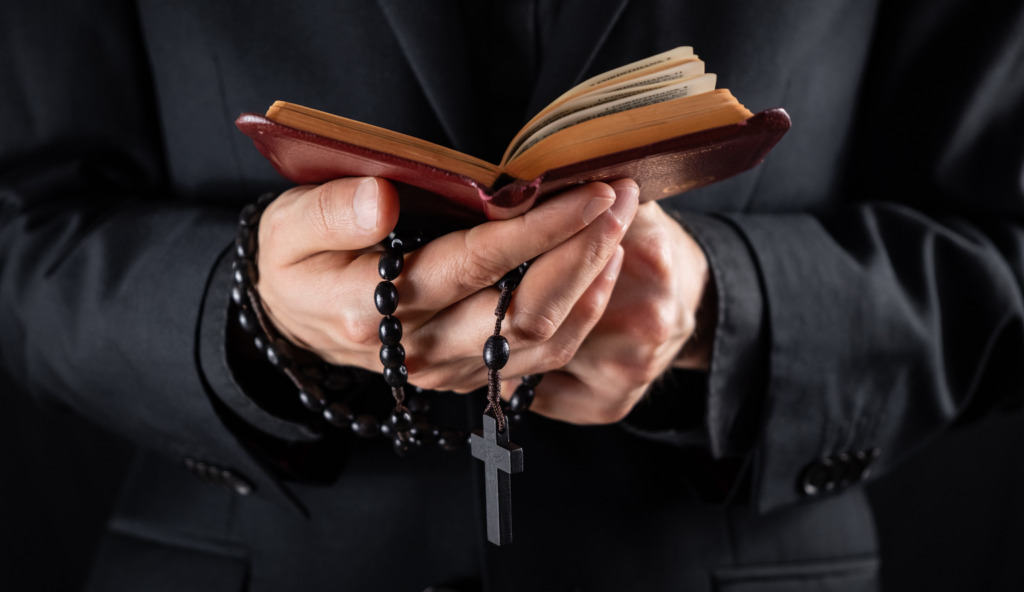Question:
I know that currently women are not ordained as priests in the Catholic Church. I have always wondered why this is, as we live in a society that emphasizes gender equality. I have asked many people about this but have received vague answers — or answers that don’t fully address the issue.
Would you explain why women are not allowed to be ordained in the Catholic Church? I am open-minded to the answer, and I just want some peace on the matter. (Richmond)
Answer:
The fundamental reason why the Catholic Church ordains only males to the priesthood is historical: Jesus chose only men in selecting the Twelve Apostles and the Church feels bound by that choice made by Jesus. And so, an all-male priesthood has been an unbroken tradition in the 2,000 years of the Church’s history.
In his 1994 apostolic letter “Ordinatio Sacerdotalis,” St. John Paul II declared that “the Church has no authority whatsoever to confer priestly ordination on women.”
There are those who say that women might well make better priests because they seem more equipped to minister to people pastorally and more likely to be sympathetic in the confessional. But the debate is not over who might make better priests but over what Jesus intended.
Some might argue that Jesus felt bound by the customs of his day that limited power in society to males and that, if he were living now, he would have chosen women for priestly ministry.
But the fallacy of that argument is this: Jesus broke all kinds of cultural barriers and regularly rejected societal customs.
He spoke to a Samaritan woman, which was forbidden to Jews; he welcomed Mary Magdalene as one of his closest followers, revealed his risen body to her first and asked her to spread the news of his resurrection; he freed the woman caught in adultery from being stoned.
So Jesus was clearly not afraid to go beyond the expectations of his time — which leads one to think that if he wanted to select women for the priesthood he would have done so, regardless of what the surrounding culture thought.
The Church’s unbroken tradition of an all-male priesthood has nothing to do with “gender equality,” which the Church supports, but everything to do with Jesus and the history of the Church.
Question:
I have a question about the eucharistic fast. This morning I went to the 7:30 Mass and had a cup of coffee with a protein shake in it before I left for church. The church was only a few minutes away, and I received Communion at the Mass, not thinking anything about the fast.
Is this a mortal sin? It was a complete mistake, but I feel so horrible for accidentally disrespecting the Eucharist, and I would greatly appreciate your guidance. (City and state withheld)
Answer:
Of course it’s not a mortal sin — or any sin at all. It was simply — as you said — a mistake, done without any thought at all. Sin requires a deliberate intention to do something wrong. And here is my question for you: What do you think God is really like?
For me, God is not some giant scorekeeper in the sky whose primary interest it is to keep track of rights and wrongs. God is the person who brought you into existence out of love, wants you to be happy here on earth and to be with him forever in heaven. So try to relax and know how much God loves you.
Follow-up to my previous column
In the Oct. 4 Catholic Virginian, I responded in this column to a question from a reader in Richmond about disruptions at Mass. The letter writer said that a parishioner had been creating a scene regularly in church — throwing her arms toward the sky, shouting out in a loud voice and walking up to the altar before anyone is invited to. The writer asked what could be done about the woman to maintain quiet and reverence.
I answered that the pastor should have a quiet conversation with her about the sense of prayerfulness needed in a church, and I quoted one diocese’s written policy regarding an individual who causes a disturbance during the liturgy.
Several people wrote in comments on that response, criticizing me for not discussing disability or mental illness and what might be a way to help that parishioner. Those comments are valid, I accept the criticism and I apologize.
Here were some of the comments: “I certainly understand that your response is technically correct and that protecting the sanctity of the Mass is important, but I was surprised to find that the response never even mentioned the possibility that the individual causing the disruption may have some sort of disability or neurological condition causing that behavior.”
Still another wrote: “I was shocked at your answer. … It may be the most unchristian thing I’ve ever seen in this paper. My husband, who had Alzheimer’s disease, often called out during Mass, waved at the priest and was otherwise ‘disruptive.’ … The other parishioners were loving and understanding. The church created a special room where parents or caregivers could take a child or disabled adult if the disruption became too great.”
But the most comforting comment of all came from Virginia from a fellow parishioner of the original letter writer. He said: “Our parish staff, including our wonderful pastor, know this lady very well and they are very kind and patient. … Yes, the lady can be disruptive and a little startling to people who are not familiar with her, but our parish is filled with loving, kind members who understand her behavior.”

